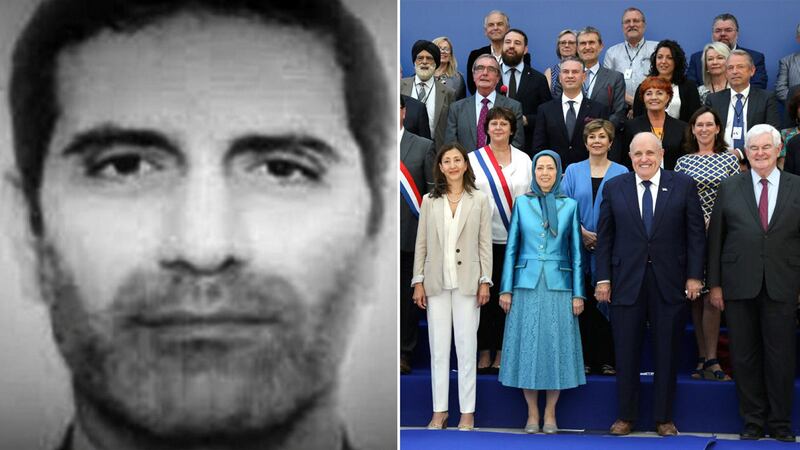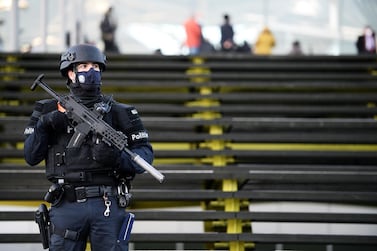An Iranian diplomat sentenced to 20 years in jail for planning a bomb attack on an opposition rally in France abandoned his appeal on Wednesday and will serve his sentence.
Assadollah Assadi was found guilty of attempted terrorism by a court in Antwerp, Belgium, on February 4 over the foiled plot to attack a rally of the National Council of Resistance of Iran (NCRI) in June 2018.
The conviction of Assadi, a spymaster for Europe operating out of Iran's embassy in Vienna, Austria, sparked a crisis in relations with the EU, but failed to lead to the mass expulsion of Iranian diplomats demanded by the NCRI.
Lawyers said the Belgian authorities would oppose any potential prisoner swap involving Assadi after his case was linked to the continued detention of dual citizens in Iran.
"This has been a political trial since the beginning and he does not want to participate any longer," his lawyer, Dimitri de Beco, said.
During his trial, Assadi claimed diplomatic immunity – an argument rejected by the court, which said his status did not protect him from accusations that he used his post as cover to run state-sponsored terrorist operations.
The court concluded that he was running an Iranian state intelligence network on orders from Tehran.
He brought explosives for the Paris plot on a plane from Iran and handed over a device to a husband-and-wife bombing team after a meeting at a Pizza Hut in Luxembourg City.
He kept in contact with them until they were arrested as they drove to the rally attended by an estimated 25,000 people in Villepinte, on the outskirts of Paris.
Assadi was arrested in Germany as he drove back to Austria with his family. He was extradited to Belgium to stand trial in Antwerp, where the bombers had lived and worked for years after claiming to have been regime dissidents.
The couple, Amir Saadouni and Nasimeh Naami, will continue their appeal along with a third agent convicted of involvement in the plot.
Assadi refused to attend the trial but became the first Iranian official to be convicted of terrorism in Europe since Iran's 1979 revolution.
Prosecution lawyer Georges-Henri Beauthier said the Belgian state guaranteed there would be no swap of Assadi for western prisoners in Iran, citing a separation of powers between judicial and political decisions.
"The Belgian government will not discuss a prisoner swap," he said, citing a written guarantee.
EU governments say they cannot turn a blind eye to terrorism, including two killings in the Netherlands and a failed assassination attempt in Denmark, which they blame on Iran.
Tehran repeatedly dismissed all terrorism charges, calling the Paris plot a "false flag" stunt by the NCRI, which Iran considers a terrorist group.
NCRI chief Maryam Rajavi, who gave testimony during Assadi's trial, called on the EU to sanction Iranian intelligence officials and elite commanders.
“The regime’s leaders, who have been responsible for the export of terrorism for the past four decades, must be brought to justice,” she said.
But few EU governments commented publicly on Assadi's sentencing in February, other than France. It is involved in indirect talks between the US and Iran to revive a 2015 accord aimed at containing Tehran's nuclear programme.
While the EU last month imposed more sanctions on Iranian individuals, Brussels is seeking closer diplomatic and business ties with Tehran.








